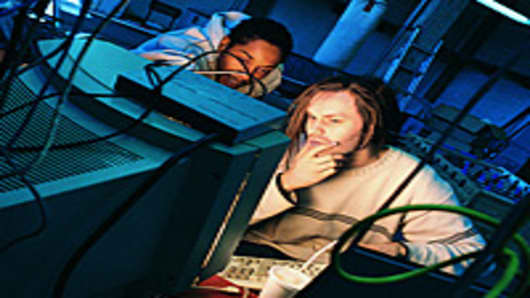Computer hackers and other foreign adversaries pose an increasingly grave challenge to the U.S. banking system, PNC Financial Services CEO James Rohr told CNBC Thursday, adding that growing cyberthreats "could really disrupt this country."
Less than a week after Defense Secretary Leon Panetta warned about the potential for a "cyber-Pearl Harbor, " Rohr said his bank had recently been the target of Internet hackers.
Along with PNC, a surge in sequential cyberattacks have recently targeted other banks, such as JPMorgan Chase, Wells Fargo , and Bank of America . (Read more: Wells Fargo Website Hit by Access Issues Amid Cyberattacks ).
"We had the longest attack of all the banks, " Rohr told CNBC's "Squawk Box, " saying that hackers "just pummeled us." Although no customer data was lost, the CEO said the multiple attacks had dramatically slowed the bank's processes.
Rohr added that PNC was working with the U.S. government to identify and halt the attacks, but authorities were being "very guarded" about information regarding the origin of the intrusions. "It's a huge security issue for the country, " he added.
"If you have a cyberattack that totally disrupts our banking industry, or if you think about an attack that somehow disrupts our power grid, you could really disrupt this country, " Rohr said. "Those are the two vulnerabilities that I worry about."
Rohr stated that PNC spends "multiples" more on insulating its systems from cyberattacks than it did even just a few years ago. At one point during the cyberassault endured by PNC, Rohr said the bank's systems had seen as many as a billion "pings" coming from all around the world.
"We spend a lot more money on security than we ever did before, " he said, citing attacks that originated from all around the world, including Russia, Brazil, and Egypt.
In chilling language, Rohr issued a warning to banks and other institutions that may believe themselves to be safe from the threat of computer hackers.
"Cyberattacks are a very real, living thing and if we think we are safe that way, we're just kidding ourselves, " Rohr said. "It's true throughout the country and in different industries, too."


